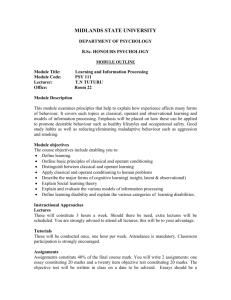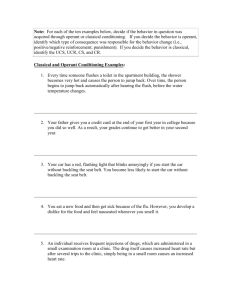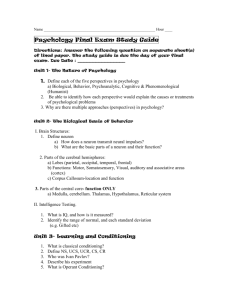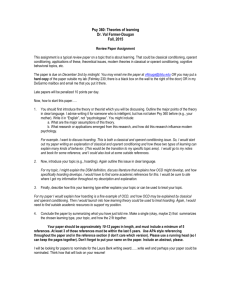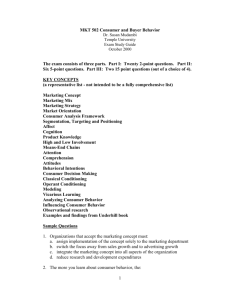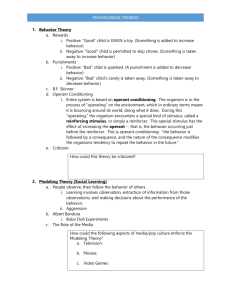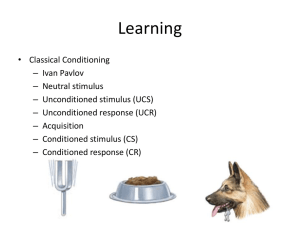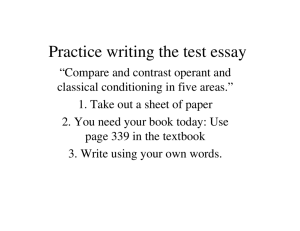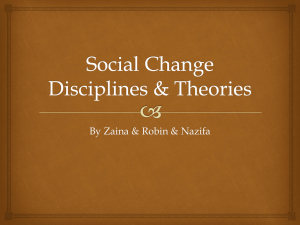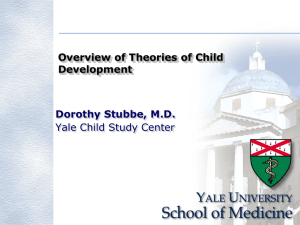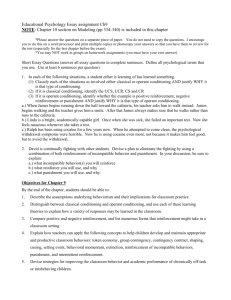MIDLANDS STATE UNIVERSITY
advertisement
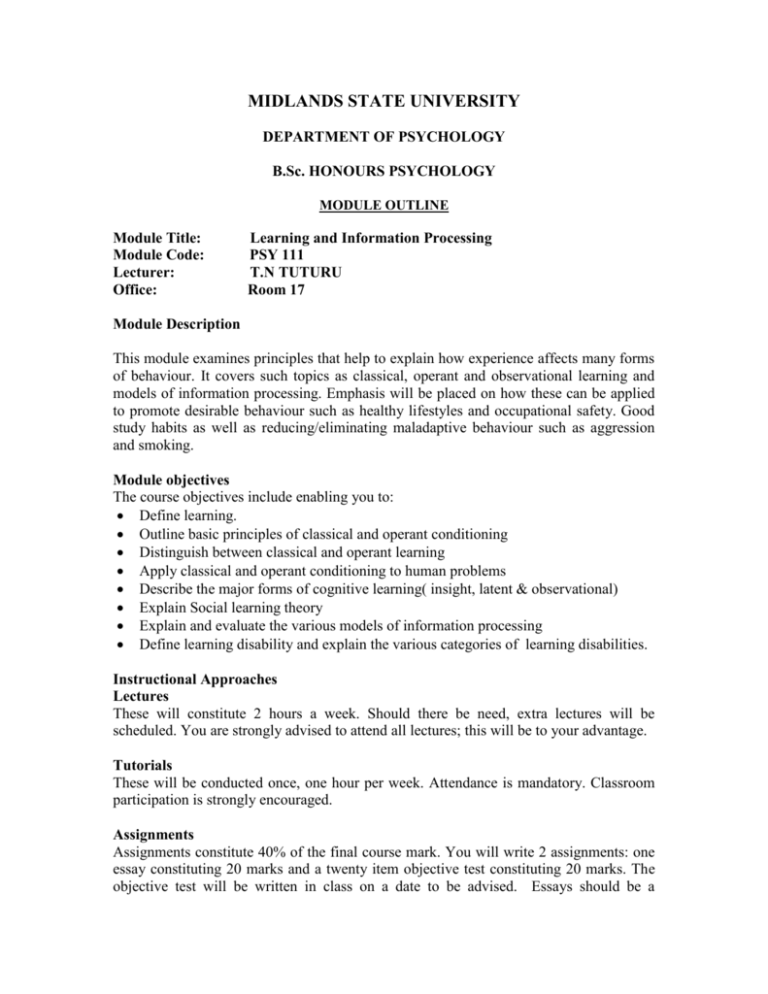
MIDLANDS STATE UNIVERSITY DEPARTMENT OF PSYCHOLOGY B.Sc. HONOURS PSYCHOLOGY MODULE OUTLINE Module Title: Module Code: Lecturer: Office: Learning and Information Processing PSY 111 T.N TUTURU Room 17 Module Description This module examines principles that help to explain how experience affects many forms of behaviour. It covers such topics as classical, operant and observational learning and models of information processing. Emphasis will be placed on how these can be applied to promote desirable behaviour such as healthy lifestyles and occupational safety. Good study habits as well as reducing/eliminating maladaptive behaviour such as aggression and smoking. Module objectives The course objectives include enabling you to: Define learning. Outline basic principles of classical and operant conditioning Distinguish between classical and operant learning Apply classical and operant conditioning to human problems Describe the major forms of cognitive learning( insight, latent & observational) Explain Social learning theory Explain and evaluate the various models of information processing Define learning disability and explain the various categories of learning disabilities. Instructional Approaches Lectures These will constitute 2 hours a week. Should there be need, extra lectures will be scheduled. You are strongly advised to attend all lectures; this will be to your advantage. Tutorials These will be conducted once, one hour per week. Attendance is mandatory. Classroom participation is strongly encouraged. Assignments Assignments constitute 40% of the final course mark. You will write 2 assignments: one essay constituting 20 marks and a twenty item objective test constituting 20 marks. The objective test will be written in class on a date to be advised. Essays should be a maximum of 4 TYPED pages and a minimum of 3 pages. Anything beyond 4 pages will not be credited. Sources consulted should be more than 5. Submission of assignments should be not later than 12 noon on the due date in the lecturer’s office. Late submissions will be penalized. Academic Dishonesty such as plagiarism is strictly forbidden and will attract disciplinary action. Therefore the contribution of others should be clearly acknowledged (see also handout on essay writing). Exam There will be an exam at the end of the semester worth 60% of your final mark. It will consist of multiple choice, short answer and essay type questions. Individual study You spent ONLY 3 hours in lectures and tutorial per week the rest of the week you are expected to research, study on your own! Content Introduction to Learning and information processing What is Learning Definition of information processing Types of learning Theories of learning Classical Conditioning Pavlov's pioneering research Basic principle of classical conditioning Applications of classical conditioning Operant Conditioning Thorndike's Law of effect Skinner's Analysis of operant conditioning Basic principles of operant conditioning Schedules of Reinforcement Applications of operant conditioning Cognitive Views on Learning Early cognitive theories Gestalt Psychology Edward Tolman’s Purposive Behaviour Jean Peaget’s Developmental theory Verbal Learning Research Social Learning theories Background Information Social learning model Environmental factors in social learning Cognitive factors in social learning Modeling Information Processing Encoding, storage and retrieval Short term or working memory Long term memory Forgetting Definition Causes Access and storage failure Serial learning Special Educational Needs Cognition and learning Mild and moderate learning difficulties Severe and special learning difficulties Dyslexia and Autism Reading List Child D. (2004) Psychology and the Teacher Continuum, London Gross R. (2001) Psychology the Science of Mind and Behaviour 4th Edition, GreenGate Publishing Services, Kent Ormrod J.E Human Learning Santrock J.W (2003) Psychology Essentials. 2nd Edition. Stone, McGraw-Hill
